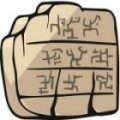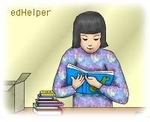
Worksheets and No Prep Teaching Resources
Reading Comprehension Worksheets
History of Books and Writing

History of Books and Writing
 Worksheets and No Prep Teaching Resources Reading Comprehension Worksheets History of Books and Writing |
 History of Books and Writing |
| edHelper's suggested reading level: | grades 9 to 12 | |
| Flesch-Kincaid grade level: | 8.19 |
| Print E-books: Fad or Future? (font options, pick words for additional puzzles, and more) |
| Quickly print reading comprehension |
| Print a proofreading activity |
|
E-books: Fad or Future?
By Colleen Messina |

|
 |
Create Weekly Reading Books
Prepare for an entire week at once! |
| Leave your feedback on E-books: Fad or Future? (use this link if you found an error in the story) |
 |
History of Books and Writing
|
 |
High School Reading Comprehensions and High School Reading Lessons
|
 |
Social Studies
|